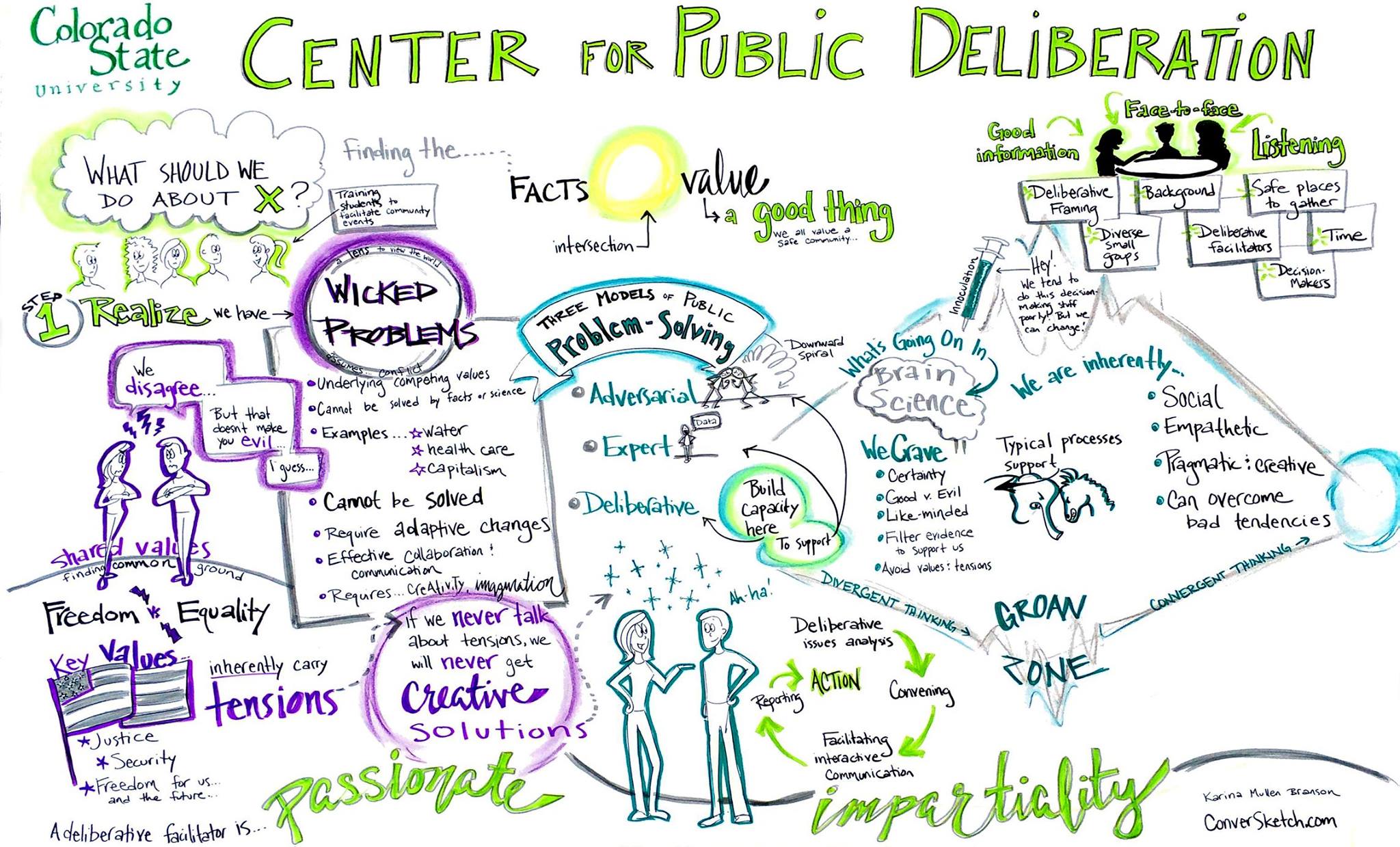A Way of Decision Making
Deliberation is an approach to politics in which citizens, not just experts or politicians, are deeply involved in community problem solving and public decision making. Working with trained facilitators who utilize a variety of deliberative techniques, citizens come together to:
- Learn about the issue
- Talk with, not past, each other
- Consider diverse points of view
- Discover key tensions and values
- Spark new ideas
- Make decisions

Not Politics as Usual
Too often, bad communication is seemingly rewarded in our political system. Despite any good intentions, politicians and candidates often rely on arguments or attacks that simplify issues and exaggerate differences.
Campaigns frame tough questions as if there are obvious choices (high taxes v. low taxes or good roads vs. bad roads), rather than the tough choices and value dilemmas inherent to public policy decisions (high taxes and good roads v. low taxes and bad roads). For democracy to thrive, decision-makers need to confront the complexity of issues and attempt to balance competing values, not distract from them. Such considerations are at the heart of deliberation.
The practice of deliberation is the cornerstone of democracy and community politics. Deliberation connects people, even those with conflicting interests, in a way that allows them to make decisions and act in regard to problems or challenging circumstances. Deliberation can also reveal new possibilities for action that individuals alone did not see before.
A Communication Practice
Deliberative democracy is also of particular interest to communication scholars. Indeed, the art of deliberation in many ways represents the traditional heart of a rhetorical education spanning back to the classical Greek and Roman societies. Deliberation is far removed from the manipulative “non-contradictory” argumentation that typifies much contemporary political debate. Rather, an ideal rhetorical perspective seeks out opposing perspectives, understands the importance of factual information, considers the inherent value dilemmas in all public controversies, and relies on structured discussion and debate to help achieve the critical goal of reasoned judgment. Deliberation should also be differentiated from dialogue. While similar in the sense that both encourage greater understanding and respect between diverse groups, deliberation goes further by asking participants to focus on the often unpleasant costs and consequences of various options and ultimately come to a decision.
To get a sense of the kind of work we do, take a look at our projects.